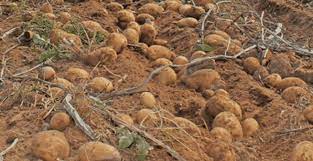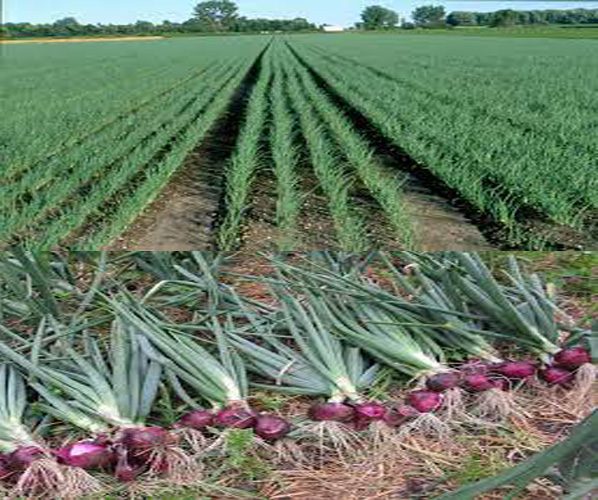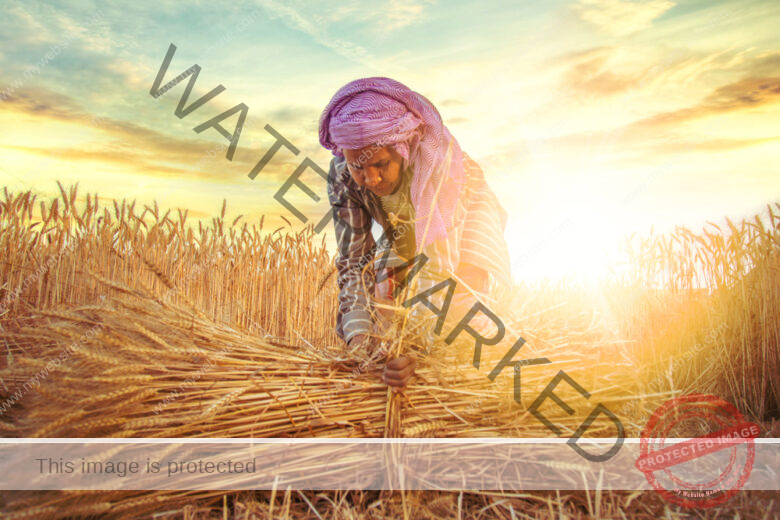Grow Irish Potatoes in Ghana and enjoy the taste of one of the finest potatoes in the world. Irish Potatoes are an excellent source of potassium, folic acid, and vitamin C. They can be cooked either in the oven or by boiling. Immerse these potatoes in a bath for two hours before cooking.
We are happy to offer you an easy and popular way of growing Irish Potatoes in Ghana with steps including land preparation, choosing your Irish potato variety, preparing potato seedlings, planting, plant maintenance, and harvesting.
Ensure you continue to read this material to learn all the tips you need to grow your Irish potatoes in Ghana either for consumption or commercialization.
How To Grow Irish Potatoes In Ghana
Don’t start growing Irish potatoes in Ghana until you have read and digested the steps discussed below so that you will have a fruitful yield.
Step 1: Land Preparation
The first stage in planting Irish potatoes in Ghana is to prepare the land. Clear the land of any existing plants that will hinder Irish potato planting. Remove any weeds or rocks from the soil and break up the dirt with a shovel or fork to produce a level surface after purchasing your site.
Read Also: [Beginners Guide] How To Grow Yam in Ghana
To avoid root rot, the soil needs to be well-drained. You should also boost the fertility of your potato bed by adding compost and fertilizer, preferably manure.
Make sure you choose a sunny location with well-draining soil to plant your Irish potatoes.
Finally, make a farm bed that is 10-12 inches (25-30 cm) high and 36 inches (91 cm) apart. These beds are critical for drainage purposes.
Step 2: Choose Your Irish Potato Variety
Potatoes do not grow directly from seeds, but instead from potatoes. Seed potatoes have buds or eyes that sprout tubers and yield potatoes.
Read Also: How To Start Palm Farming In Ghana [Beginners Guide]
Seed potatoes are available at your local garden center. Check the seed variety to ensure it is suitable for planting and can provide a high yield.
Step 3: Preparing Seed Potato
Before planting your seed potatoes, you have to prepare them for planting. So, you have to chit the seed potatoes to sprout. As such, you have to pour the seed potatoes into a bowl or carton for a week or so before planting in a dry, sunny location. Green shoots will emerge from your potatoes while they are chitting.
Read Also: [Beginners Guide] How To Start Cabbage Farming In Ghana
This gives potatoes a head start and avoids white, leggy shoots. Plant potatoes when the shoots are about 1 inch (2.5 cm) long.
Step 4: Seed Planting
Irish potatoes can be grown in Ghana by planting the whole seed or cutting them in pieces.
The seeds should be planted 2 to 3 centimeters deep and at least 30 cm apart on a leveled farm bed.
If you are planting the cuttings, you should plant 2 to 3 cm deep and about 5 cm apart with around 2-3 leaves on each plant.
Cover the potatoes with another 2 inches of dirt once sprouts grow from the earth. Continue to hill the soil as the sprout increases.
Also, mulch over the tops of the potato plant roots with dried grass or weeds to keep the emerging tubers covered and sheltered from inclement weather.
Step 5: Plant Maintenance
There are maintenance practices you need to implement after planting your seed potatoes so that you can get a meaningful yield.
Fertilizer or Manure Application
Aside from fertilizing your potato patch before planting, you should also fertilize it after planting because potatoes require a lot of nutrients to flourish at the beginning of the season.
Weeding and Irrigation
Weeding is a crucial activity that must be completed if your potato plant is to thrive. Weeding should be done regularly to ensure that the plants receive the proper quantity of nutrients and moisture.
Water your potatoes regularly after planting. When potatoes first begin to grow, they want moist, enriched soil. Water on top of the fertilizer to aid in its incorporation into the soil.
Pest and Disease Control
Potatoes suffer from varying pests and disease attacks during the germination stage. That is why you must be vigilant to detect any disease or pest that may be affecting the plants.
Blackleg, bacterial soft rot, black scurf, potato blight, and Rhizoctonia are some of the diseases that damage potatoes. Once you’ve identified the disease’s symptoms, you should begin treatment.
Step 6: Harvesting
Potatoes develop in 90 to 100 days, though this varies based on type and sowing time. The leaves turn yellow as the plant matures, and the foliage dies back.
Allow the potato to mature in the ground for another 2-3 weeks before harvesting so that the skin becomes tough and smooth.
Remove them from the soil with a hand fork, bare hands, or a spade. Because tubers do not store well, it is important to avoid wounding them. Shake off the sand after removing the tubers from the plant.
Variety of Irish Potatoes in Ghana
Ghana has several varieties of Irish potatoes that can be grown in different regions of the country. Some of the popular Irish potato varieties that can be grown in Ghana include:
- Nicola
- Desiree
- Markies
- Rudolph
These varieties differ in their taste, texture, and appearance, and have different growing requirements.
Irish Potatoes Prices in Ghana
The price of Irish potatoes in Ghana varies depending on the region, season, and supply and demand factors.
On average, a kilogram of Irish potatoes can cost between GH₵2 and GH₵5. Prices may be higher during the offseason when supply is low, while prices may be lower during the peak season when supply is high.
Best Agronomic Practices to Grow Irish Potatoes in Ghana
To grow Irish potatoes successfully in Ghana, it is essential to follow the best agronomic practices. Some of the best agronomic practices that you can engage in to grow Irish potatoes in Ghana include:
- Soil Preparation: Ensure the soil is well-draining, fertile, and rich in organic matter.
- Seed Selection: Use certified seed potatoes to ensure good yields and disease-free crops.
- Irrigation: Provide adequate water to the plants to ensure proper growth and development.
- Fertilization: Apply appropriate fertilizers at the right time to provide the plants with essential nutrients.
- Pest and Disease Control: Monitor the plants regularly for pests and diseases and use appropriate control measures when necessary.
- Harvesting: Harvest the potatoes at the right time to ensure optimal quality and yield.
Projected Profit of Irish Potatoes in Ghana
The profitability of Irish potato farming in Ghana depends on several factors, including the yield, market demand, and input costs.
On average, a well-managed Irish potato farm can yield between 15 and 25 tons per hectare. If sold at the current market prices, a farmer can earn between GH₵30,000 and GH₵125,000 per hectare.
However, this figure may vary depending on the region, season, and market demand.
Common Diseases and Pests of Irish Potatoes
Irish potatoes in Ghana are susceptible to various diseases and pests. Some of the common diseases and pests of Irish potatoes include:
- Late blight: This is a fungal disease that causes black spots on the leaves and tubers. Treatment involves applying fungicides and practicing good cultural practices.
- Aphids: These are small insects that suck the sap from the plants, causing stunted growth and distorted leaves. Treatment involves using insecticides or introducing natural predators such as ladybugs.
- Potato tuber moth: This is a pest that attacks the tubers, causing rot and decay. Treatment involves using insecticides and practicing good cultural practices such as crop rotation and sanitation.
Different Propagation Methods of Irish Potatoes
Irish potatoes can be propagated through various methods, including:
- Seed Tubers: This involves planting whole or cut seed potatoes into the soil.
- Tissue Culture: This involves growing Irish potato plantlets in a nutrient-rich solution in a laboratory.
- True Potato Seed: This involves planting seeds that are produced from the flowers of the potato plant.
Each propagation method has its advantages and disadvantages, and the choice of method will depend on factors such as the scale of production, availability of resources, and the growing environment.
Can Irish Potatoes Grow In Ghana?
Irish potatoes can grow in Ghana under a temperate climate and ideal conditions.
How Long Does It Take To Grow Irish Potatoes?
Irish potatoes grow to maturity between 90 and 120 days after planting.
What Is The Method Of Planting Irish Potatoes?
Seed potatoes are used to plant Irish potatoes. It is planted deep into the soil just 3 inches and 10 to 12 inches apart.
What Type Of Soil Is Good For Irish Potatoes?
Loose loamy and sandy loam soils are the best type of soil to plant your Irish potatoes.
What Vegetables Grow Well In Ghana?
Vegetables that grow well in Ghana include tomato, onion, shallots, okra, eggplant (garden eggs), sweet pepper, carrots, cabbage, chili pepper, and hot pepper, among others.
Can You Grow Potatoes In Ghana?
You can grow potatoes in Ghana as long as it is planted under ideal climate condition and soil properties are met.
What Month Do You Plant Irish Potatoes?
The month of October is the Irish potato growing season.
How Many Potatoes Do You Get Per Plant?
A potato plant can produce between 5 to 10 potatoes.
What Month Do You Plant Potatoes?
The ideal month to plant potatoes is from mid-March to late April.
How Do I Start A Potato Farm?
To start a potato farm, you need to
- Get an ideal sunny location with well-drained loam soil
- Prepare the location and create farm bed
- Get seed potatoes variety ideal for your location
- Plant seedling
- Water immediately after planting
- Apply fertilizer or organic manure
- Mulch to retain soil moisture
- Weed and pest control
- Harvest
What Are the Main Crops Grown In Ghana?
The main crops grown in Ghana include Cocoa, oil palm, rubber, citrus, maize, cassava, plantain, yam, cocoyam, rice, sorghum, and millet.
How Do I Plant Potatoes?
If you want to plant potatoes, you should
- Get an ideal farm location
- Prepare the farmland and build trenches
- Apply fertilizer or compost to enrich the soil
- Get seed varieties
- Prepare the seed for planting
- Plant seedlings and water immediately after planting
- Apply fertilizer or organic manure
- Irrigate and Mulch to retain soil moisture
- Weed and Disease Control
- Harvest
Is Broccoli Grown In Ghana?
Broccoli is not commonly grown in Ghana because of the climate and soil requirements.
How Profitable Is Irish Potato Farming In Nigeria?
Irish potato farming is found to be profitable in Nigeria considering the low input and high return on investment for most farmers.
How Do Potatoes Grow In Africa?
To grow potatoes in Africa, you can follow the steps below.
- Get farmland in a location with ideal climate and soil properties
- Prepare the farmland for potatoes farming
- Create irrigation system
- Apply fertilizer or compost to enrich the soil
- Get or purchase seed varieties
- Prepare the seed for planting
- Plant seedlings and water immediately after planting
- Apply fertilizer
- Irrigation and soil mulching
- Weed and Disease Control
- Harvest
Which Vegetable Is More Profitable In Ghana?
Vegetables that are more profitable to plant in Ghana include tomatoes, peppers, onions, and okra.
What Is Spinach Called In Ghana?
Which Vegetables Are Imported Into Ghana?
Ghana imports vegetables among which are tomatoes, cucumber, lettuce, carrots, turnips, mushrooms, shallots, and garlic.
How Long Do Irish Potatoes Take To Grow
It takes Irish potatoes 3 to 4 months to grow ready for harvest.
Irish Potato Farming PDF
Irish potato farming is one of the most profitable farming to venture into. However, you need to be well prepared, importantly acquire knowledge about Irish potato farming.
You can read the Irish potato farming PDF, a comprehensive and detailed material that contains all the information you need to know about the venture including the plant history, how to plant, plant preparation, planting method, and other vital information that will help you successfully establish venture into Irish potato farming.
How To Plant Irish Potatoes In Sacks
Step 1: Get a planting sack with drainage holes
Step 2: Fill with soil and compost mix of 5cm
Step 3: get your seed potato
Step 4: prepare seedlings for planting
Step 5: Place the seed potato, a minimum of two in a bag and fill it again with enough soil to cover the seed.
Step 6: Maintain balanced soil moisture by watering regularly
Step 7: Place the sack in a sunny location to receive sunlight
Step 8: Cover the sprouted potato greens with a compost mix as they emerge
How To Grow Potatoes Step By Step
The step-by-step guide to growing potatoes is highlighted below.
Step 1: Prepare land for Irish Potato Farming
Step 2: Acquire the best varieties
Step 3: Seed preparation
Step 4: Planting methods
Step 5: Irrigation and Fertilizer application
Step 6: Weed and disease control
Step 7: Harvesting
Irish Potato Seeds
Irish potato seeds are used to plant potatoes. The seed has a bud eye which shows it is good for planting. The seed potato usually is the potato itself. It is prepared by placing it in a warm location to sprout before being planted. Irish potato seed can be planted whole or sliced in pieces with each piece having a bud eye.
Diagram Of Irish Potato
Irish Potato Plant Pictures
Irish Potato Varieties
Irish potato varieties that are commonly planted include Maritima, Cultra, Navan, Nectar, and Electra.
Conclusion
Growing Irish potatoes is not as tasking as you suppose it will be. It is something you can do at home or on farmland. From the steps outlined and discussed in this material, you will find it easy to grow your Irish potatoes successfully.




